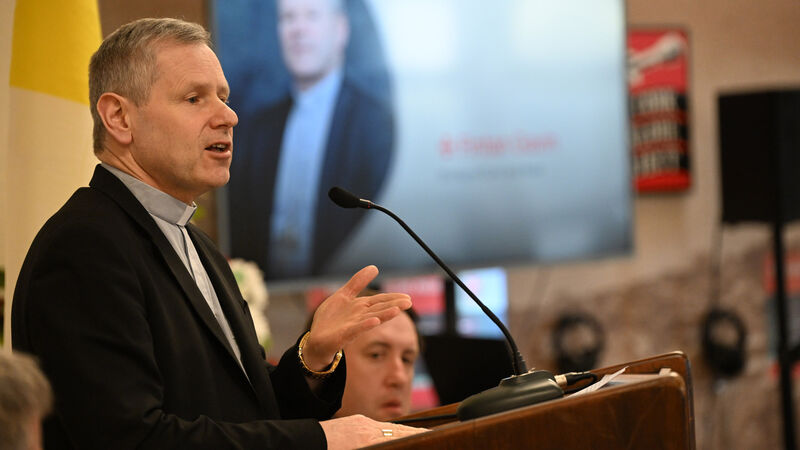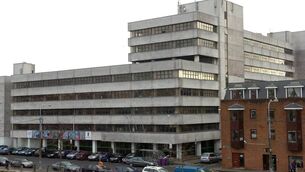'Unity call' to new faith groups ahead of Eucharistic procession

Bishop Fintan Gavin, Bishop of the Diocese of Cork and Ross, at the launch of the 98th Cork Eucharistic Procession which takes place on Sunday, May 26 at 3pm, in Cork city centre.
The Bishop of Cork and Ross has encouraged more face-to-face meetings and integration with the new Irish and members of new faith communities, rather than buying into labels or stereotypes.
Bishop Fintan Gavin made the comment as he issued a "unity call" for the city’s famous Eucharistic procession at the end of the month.













